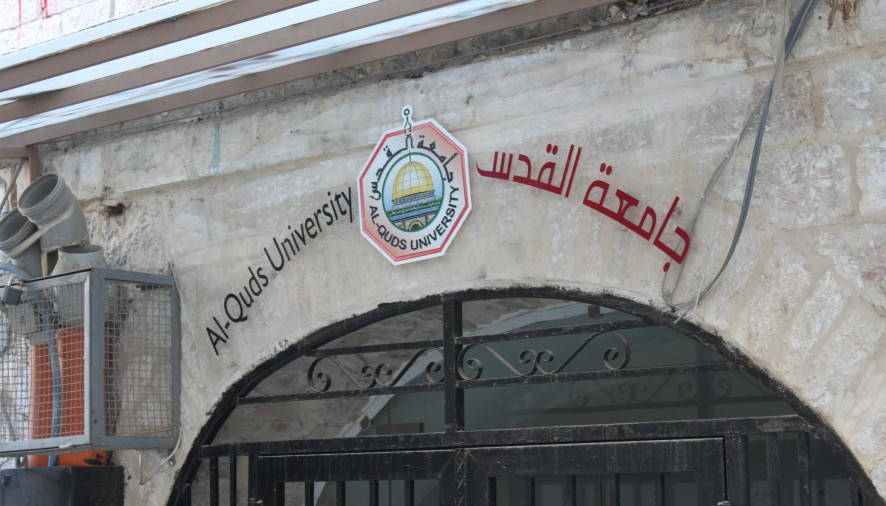As the semester draws to a close, with those final assignments being submitted and the holiday spirit kicking in, this last week at university is set to be a busy one for us all. Amidst the holiday excitement, this week not only marks Human Rights Week, but it also stages a pivotal referendum at LUU. A motion was put forward at the Better University Forum by a Leeds student calling for LUU to twin with Al-Quds University in Jerusalem. This week there will be a campus-wide vote on whether or not this twinning should take place.
The University of Leeds is currently twinned with over sixty other universities worldwide and this providing many cultural and academic benefits. However, none of these sixty universities are in the Middle East. Twinning would open up academic exchange between various university departments: especially benefiting the Arabic, Islamic and Middle Eastern Studies department, paving the way for Arabic language exchange programs.
Twinning LUU with Al-Quds University would involve the following:
- Informing and educating our students of the challenges and barriers to educational access for Palestinian students.
- Working on cultural and academic exchange programs including:
- Exchange of students for training at all levels, information, teaching materials, and scientific reports
- Visiting lecturers and researchers
- Fulfillment of joint research, publications, and educational projects
- Organising conferences, seminars, workshops, and courses
- Providing a physical recognition of the link, alongside a dedicated webpage to the partnership.
- Lobbying the University of Leeds to foster links in the field of academic research and online learning.
There are many benefits to twinning with Al-Quds University, but most important of all is the right to education, enshrined in the human rights declaration. As students, we are privileged to attend and have easy access to a university, which is among the top-24 research based universities in the country. The students at Al-Quds do not share the same privileges and access to resources that we do. Twinning would then be a significant step in championing the right to education for all students regardless of their ethnic or socio-economic background.
We take it for granted that we roll out of bed in the morning and attend our lectures, moving from one end of the campus to the other. For students at Al-Quds, it is quite a different story. Freedom of movement is severely restricted for Palestinian students: an 8 meter-high separation wall around the main campus cuts it off from 36% of its students, and military checkpoints into Jerusalem involve up to 2 hour waits. 91% of students have missed classes due to the 542 obstacles to movement in the West Bank. To add to the barriers facing Al-Quds students, foreign academics are unable to teach in Palestinian universities. This isolates the university from the wider academic community, as students are denied the chance to hear a broad range of views from experts all over the world.
Despite the challenges, Al Quds remains a prestigious university and twinning would not only raises the international profile of Leeds, as a university linked with another incredible institution, but it would create exciting opportunities for staff and students alike. The research benefits of twinning would improve the already high level of teaching at both institutions, and it would allow Leeds to stay at the forefront in many areas of academic research. The benefits of cultural and academic exchanges that would be felt by LUU cannot be understated either. Twinning would allow us to create links with a pioneering University: Al Quds is at the forefront of nanotechnology research and is renowned for its medical school and human rights clinic. It also boasts the first Open University program in the Arab world. Furthermore, twinning would help create constructive dialogue and interaction between Palestinian students and academics, as well as with their counterparts at Leeds, helping to raise cultural awareness.
Professor Colin Green of UCL fully supports the fostering of links between Al-Quds and UK universities: “the opportunities for research in a unique setting in Palestine not available elsewhere in the world is a huge opportunity to be seized with collaboration by both parties.” He further adds, “Teaching Faculty exchanges are similarly rewarding (most Palestinian students have reasonable English so we do not have to know Arabic)”. There are various other UK universities, such as LSE, SOAS, Oxford, Manchester, Goldsmiths, Liverpool and Kings College London that are all twinned with Palestinian universities and it is important that Leeds University does too, supporting the right to universal education and cultural exchange.
It is crucial that the student population take part in the referendum and for LUU to take this positive step. It not only affirms our commitment to express our solidarity with students in difficult circumstances, but it also creates numerous positive opportunities for Leeds University itself.
Vote yes, today!
Yusra Ahmed

